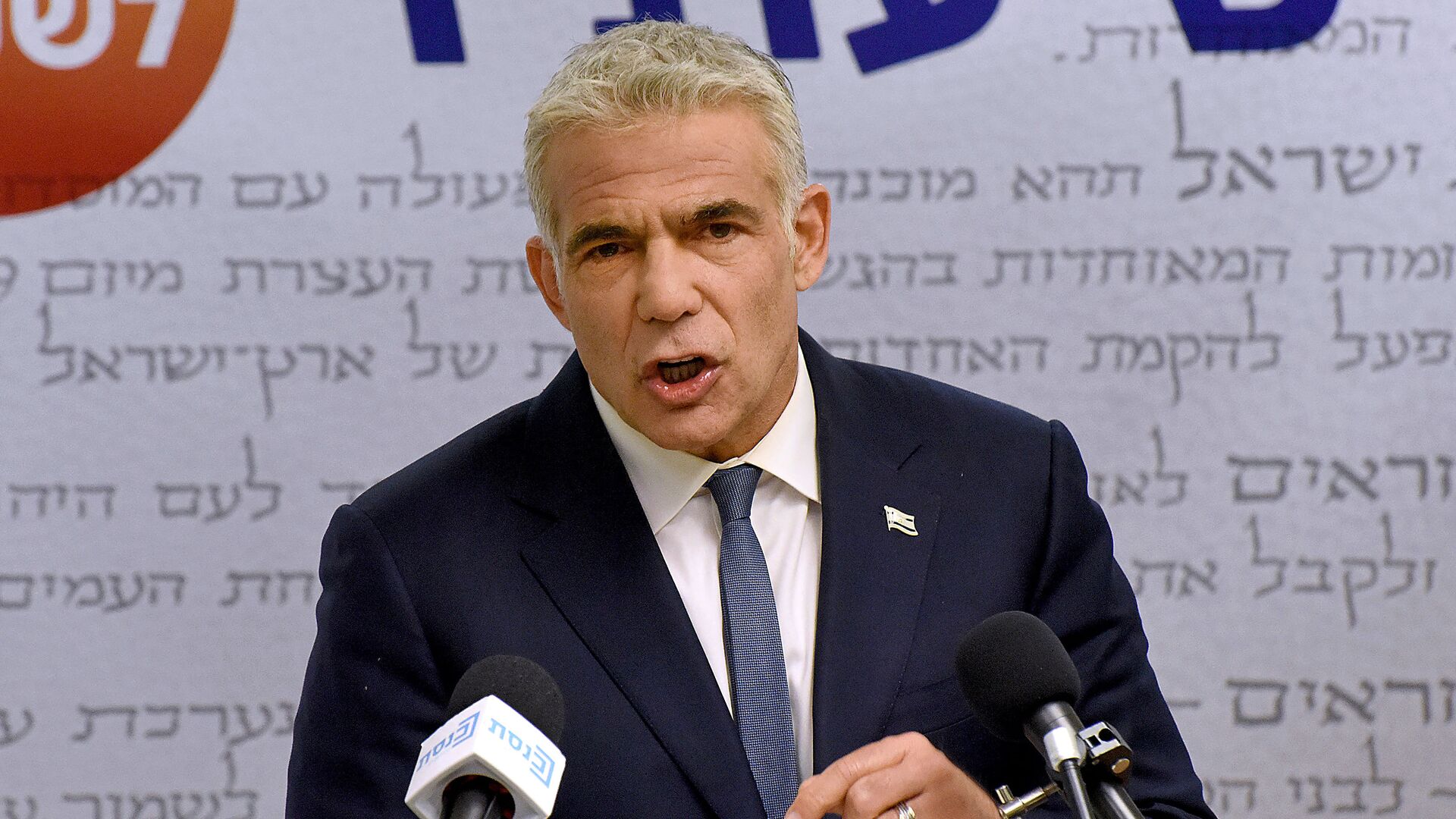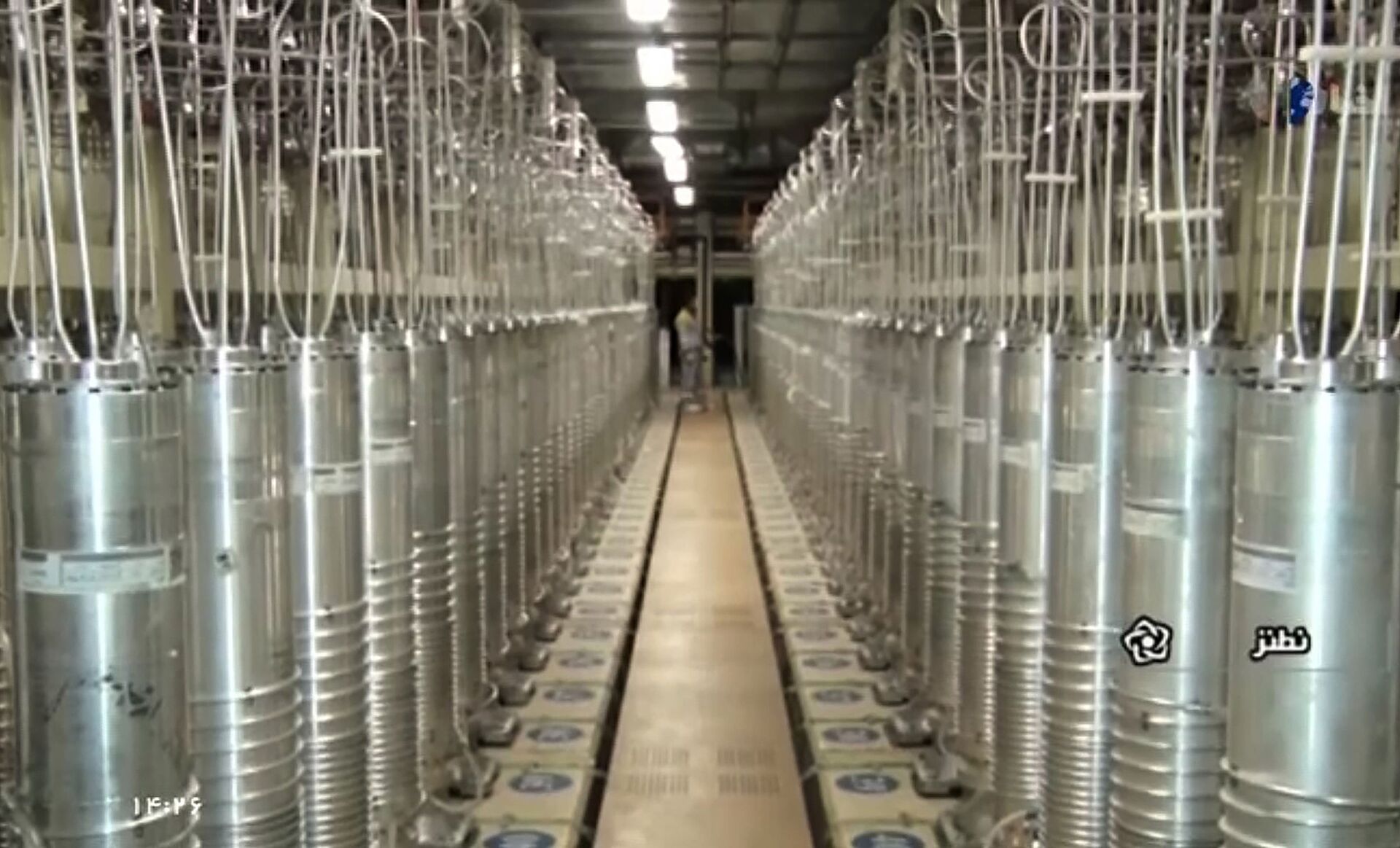Israel's Lapid Says Revived Iran Nuclear Deal Wouldn't 'Apply to Us in Any Way'
17:47 GMT 02.06.2022 (Updated: 17:26 GMT 15.01.2023)

© AFP 2023 / DEBBIE HILL
Subscribe
Despite nearly all aspects of reviving the nuclear deal having been agreed upon, both the United States and Iran continue to say that such an agreement is “tenuous” at best.
Speaking to the Jerusalem Post for an interview published on Thursday, Israeli Foreign Minister Yair Lapid said that if the US and Iran succeeded at reviving the Joint Comprehensive Plan of Action (JCPOA), it would not affect Jerusalem’s plans to destroy Iran’s nuclear program.
“It doesn’t apply to us in any way, and we are going to do whatever is necessary to make sure Iran doesn’t become a threshold nuclear country,” Lapid told the paper about the JCPOA.
“We have told the world we are not willing to take it anymore,” he added. “Iran says we can bring the war to your doorstep, because you will never bring it to ours. This is not going to happen. This is not how it’s going to play" out.”
“I understand why they felt that this is how it worked in previous years, but it’s not going to work with this government," the foreign minister said. "If the Iranians are bringing war to our doorstep, then they’re going to find war at theirs. If they want to avoid it, then we will avoid it as well.”
Israel has long waged an espionage war against Iran’s nuclear program, which Tehran says is only for civil purposes like electricity generation and medical research. That has included sabotage of facilities, suicide drone attacks, theft of documents, and assassinations, like the brazen daylight murder of senior nuclear scientist Mohsen Fakhrizadeh on the freeway outside Tehran in November 2020.

In this image made from April 17, 2021, video released by the Islamic Republic Iran Broadcasting, IRIB, state-run TV, various centrifuge machines line the hall damaged on Sunday, April 11, 2021, at the Natanz Uranium Enrichment Facility, some 200 miles (322 km) south of the capital Tehran, Iran
© AP Photo / IRIB
The Israeli Defense Forces (IDF) have also boasted of planning airstrikes on Iran’s nuclear facilities, which it most recently rehearsed earlier this week.
Israel and the US claim that Iran lied about giving up its ambitions to construct a nuclear weapon when it signed the JCPOA in 2015, and in 2018 the US unilaterally pulled out of the deal and reimposed “maximum pressure” sanctions on Iran. Israel was never party to the deal, but sees the Islamic Republic as its primary adversary in the region due to its staunchly anti-Zionist foreign policy.
Ironically, Israel and the US both have nuclear weapons themselves and the US is the only nation to ever use such weapons in wartime.
In response to the US’ move, Iran began reducing its commitments made under the JCPOA, increasing the quality and quantity of uranium it refined. However, those have not approached the purity needed for a viable weapon, and no parallel effort to develop a weapon has been reported by Western intelligence.
After US President Joe Biden took office in early 2021, negotiations began on returning to the deal, which were nearly complete by early 2022 but which have stalled on a number of ancillary issues, such as monitoring compliance if the deal were revived. Iran has also demanded its Islamic Revolutionary Guard Corps (IRGC) be removed from the US State Department’s list of terrorist organizations, and the US has demanded that certain American citizens in Iranian custody be released, although neither demand was itself part of the JCPOA.
During his interview, Lapid also said that it was possible the next Arab country for which the US might facilitate normalization of relations with Israel could be Saudi Arabia, another US ally and regional rival of Iran that disapproves of the JCPOA.
“With Saudi Arabia, if it will happen, it’ll happen with baby steps," the Israeli foreing minister said. "But I think some of those steps are being taken. I think that the American administration is game for this process, and we appreciate that.”
